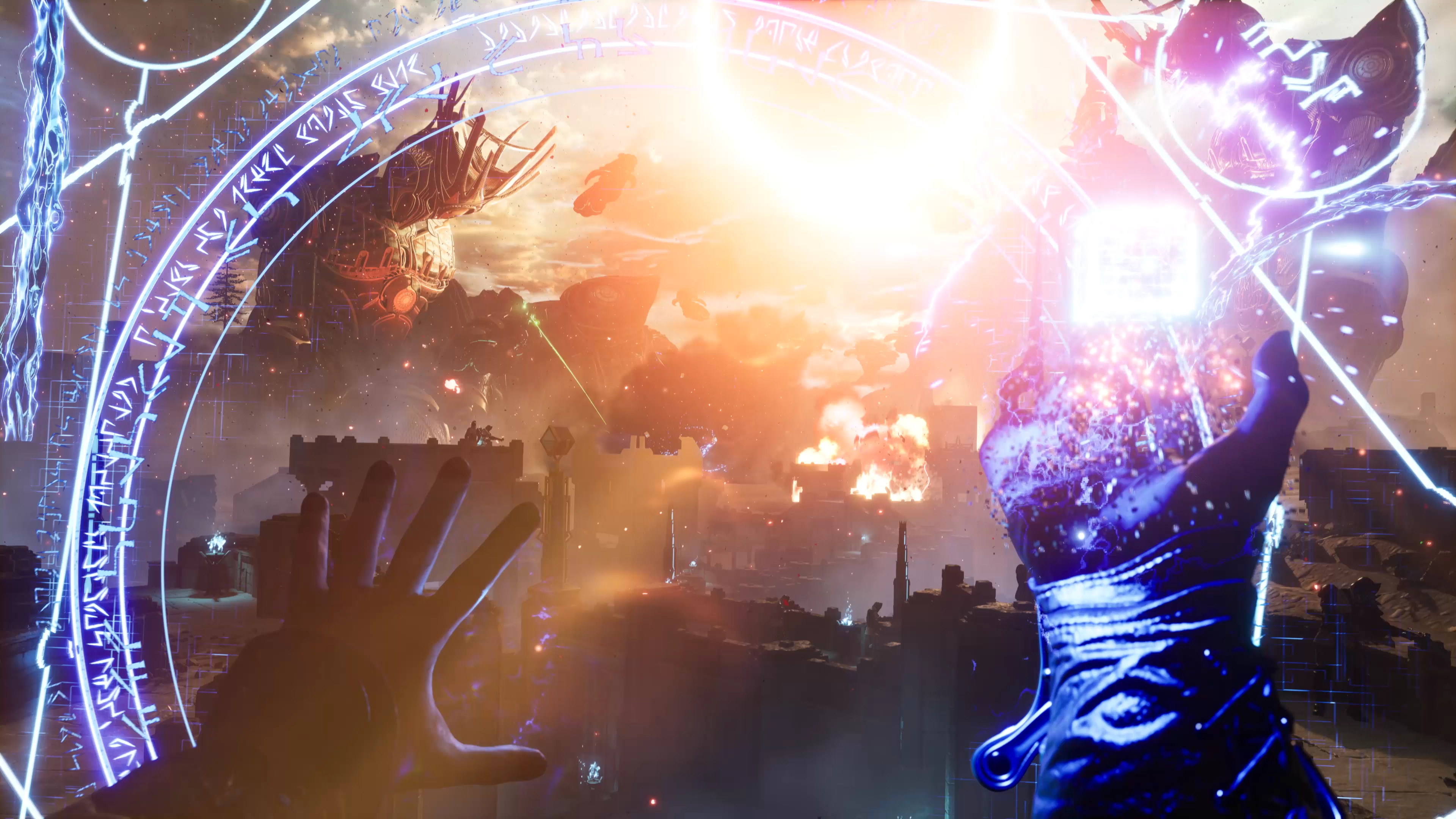EA and a studio reportedly invested $125 million making a new singleplayer IP with zero microtransactions, no grind, a shorter running time, and guess what: 'No one bought it'
Immortals of Aveum's launch went so poorly that almost half the studio was laid off shortly thereafter.

A new report by IGN into the wider topic of industry layoffs, which are worse than they've ever been, contains a fascinating insight about one of last year's less-successful AAA titles. Immortals of Aveum was the debut title from Ascendant Studios, released on Steam and consoles in August 2022, came out to mixed reviews and largely sank without trace: PCG's review called it a fun magical FPS that "fails to cast any new spells" on the way to a 68% score.
The thing is, EA had invested big in this game, and Ascendant had some firm ideas about what the game-playing public might want from it. Immortals of Aveum had a launch party where developers were asking higher-ups about how the game's sales looked, and were met with evasive answers. Shortly afterwards, citing the game's underperformance, almost half the studio was laid off, around 50 people in total.
"At a high level, Immortals was massively overscoped for a studio's debut project," said one ex-Ascendant employee. "The development cost was around $85 million, and I think EA kicked in $40 million for marketing and distribution. Sure, there was some serious talent on the development team, but trying to make a AAA single-player shooter in today’s market was a truly awful idea, especially since it was a new IP that was also trying to leverage Unreal Engine 5. What ended up launching was a bloated, repetitive campaign that was far too long."
The game sold a "tiny fraction" of what was predicted and, while the blame for severe layoffs like this is often laid at the door of the publishers (in this case EA), some of those who worked on the title look back with regret on the style of game they made. Another Ascendant employee, still with the company, references a popular games industry X post that became something of a meme: "I want shorter games with worse graphics made by people who are paid more to work less and I'm not kidding."
Well, Ascendant staff reckoned that was what they were doing with Immortals of Aveum. "It's not a sequel or a remake," says the employee. "It doesn't take 400 hours to beat, has zero microtransactions, no pointless open world grinding. Although not everyone loved it, it reviewed pretty well, currently sitting at a 74 on Open Critic and a Mostly Positive on Steam. No one bought it."
People will doubtless have strong opinions on whether Immortals of Aveum does indeed tick all those boxes, but that last line is stark indeed. And it does make you think about how easily layoffs like these are put at the door of the moneymen when, really, with something like this it is cold hard economics.
"There's plenty of layoffs due to gross mismanagement and greed, but there's also plenty that happen because this is a stupidly volatile market that requires mountains of capital to participate in at a professional studio level," says the ex-Ascendant staffer. "For all the things Ascendant did right (paying people well, an entirely remote studio, little overtime until the end, chill environment with lots of freedom to grow, respecting QA, hiring juniors, etc.), it did not work out."
Keep up to date with the most important stories and the best deals, as picked by the PC Gamer team.
Ascendant Studios remains active, though there's no news on its next project and work on Immortals of Aveum seems to have wrapped-up. Whatever else can be said about the game, and whether those employee estimates of the investment are accurate, it represents one of the big publishers betting on a new IP without all the live service nonsense that the audience claims to hate. It represents a AAA studio run in the way that the games industry Twitter hivemind thinks they should be run. None of this helped the game break through, or sell enough to keep its makers employed.

Rich is a games journalist with 15 years' experience, beginning his career on Edge magazine before working for a wide range of outlets, including Ars Technica, Eurogamer, GamesRadar+, Gamespot, the Guardian, IGN, the New Statesman, Polygon, and Vice. He was the editor of Kotaku UK, the UK arm of Kotaku, for three years before joining PC Gamer. He is the author of a Brief History of Video Games, a full history of the medium, which the Midwest Book Review described as "[a] must-read for serious minded game historians and curious video game connoisseurs alike."

